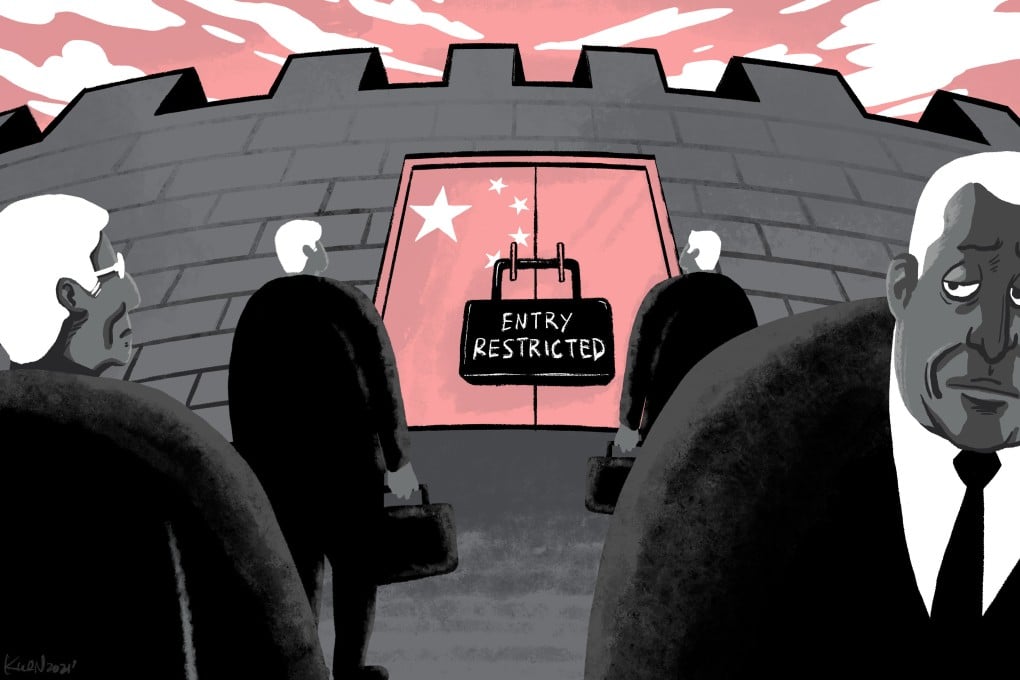China’s closed borders ‘a real problem’ for foreign business operations amid coronavirus
- Many firms fear that draconian travel restrictions may result in fundamental shift away from the way business was done in China before the coronavirus
- There are widespread concerns that China’s foreign talent pool may never fully recover

This is the second in a series about China’s plans to reopen its borders to the world amid the Covid-19 pandemic.
China’s practice of quickly clamping down on even the smallest coronavirus outbreaks – by imposing aggressive restrictions on movement and mandating widespread testing – has for the most part kept the pandemic at bay since the initial lockdowns in January 2020.
But this unorthodox approach, including effectively closing the nation’s border to visitors, is having a knock-on effect of making it difficult for companies – including many foreign ones – to do business in the country, and the economic implications are expected to be far-reaching.
Some call the measures draconian, adding that they may result in a fundamental shift away from the way business was done in China prior to the pandemic.
If there is not a predictable mechanism to facilitate foreign workers’ return after visiting families abroad, European companies worry that some employees will simply leave in order to reunite with their loved ones
A survey on business confidence in China this year – released by the European Union Chamber of Commerce last week – shows that 68 per cent of respondents consider coronavirus-related entry restrictions to be one of the top challenges they are facing.